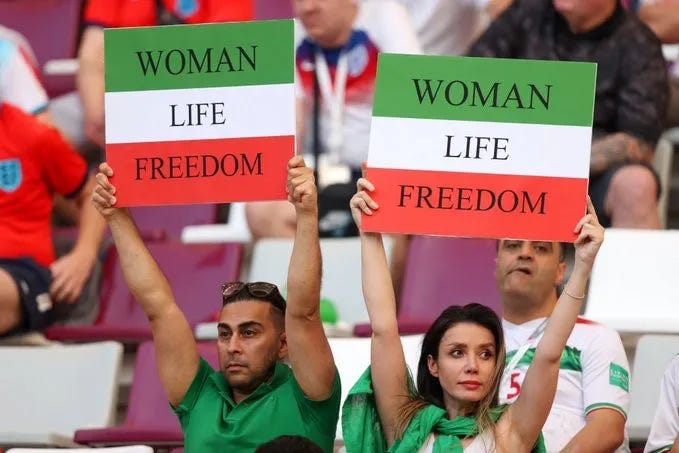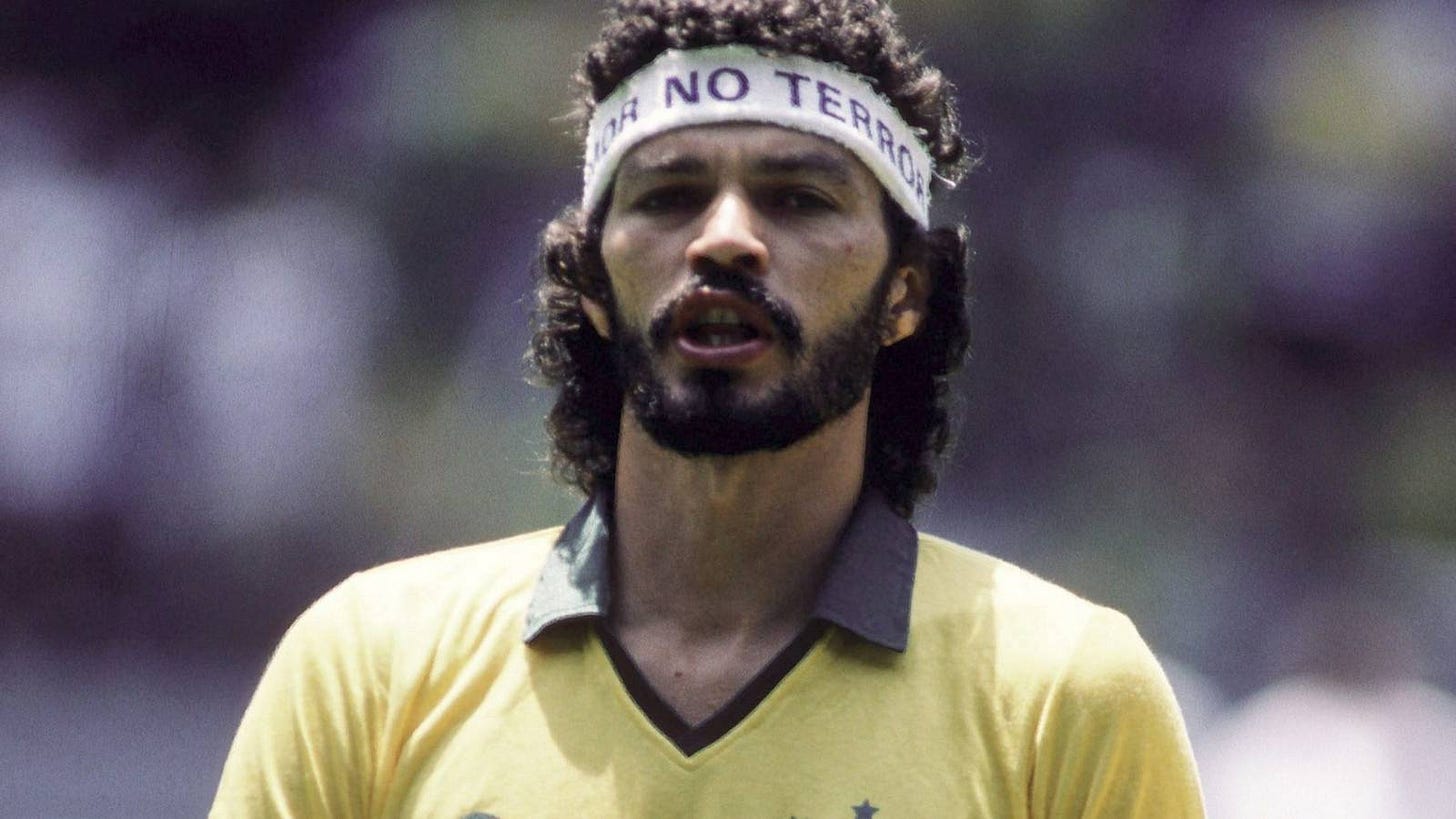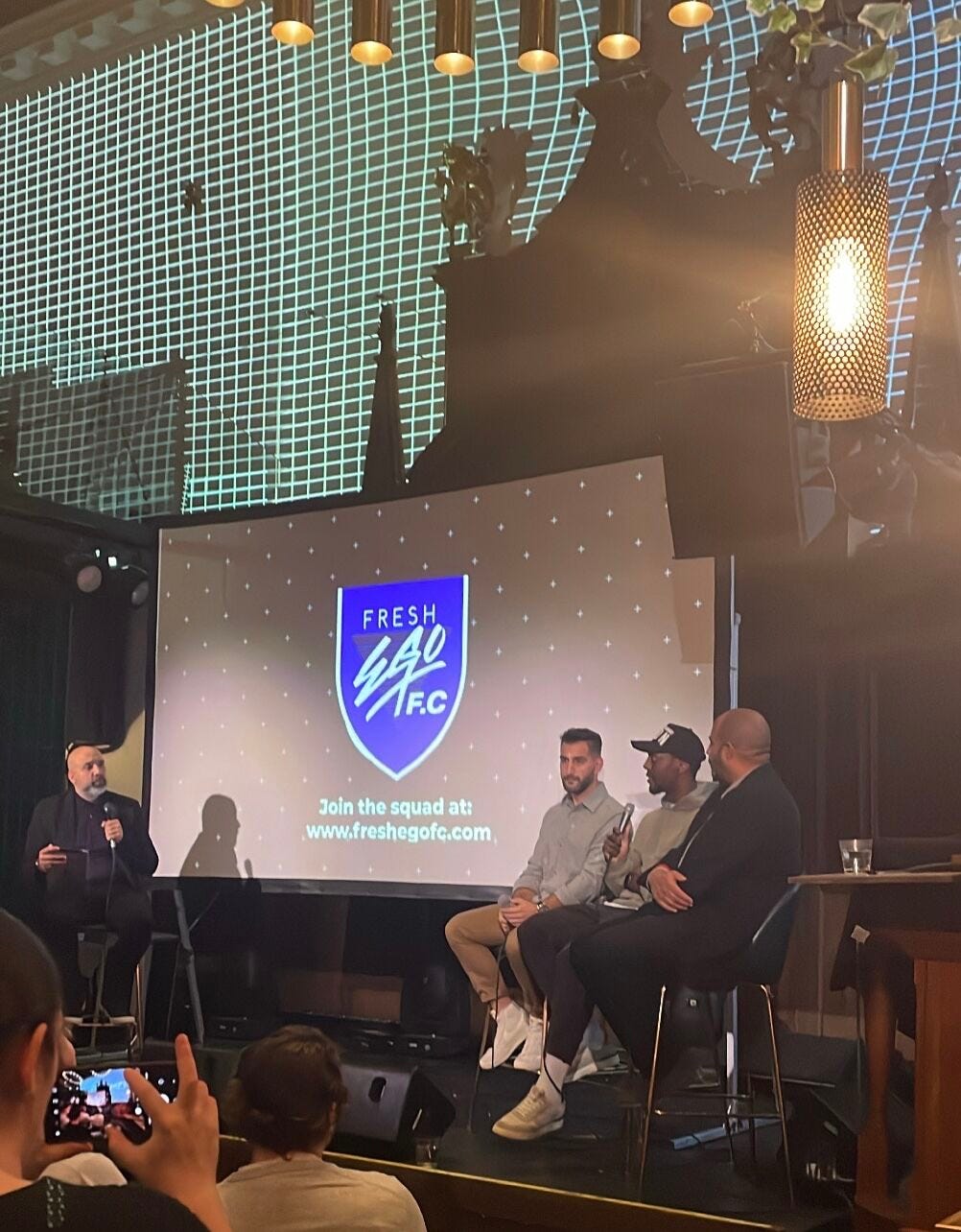The Fifa World Cup has never been able to separate itself from politics - but stakes are higher than ever in 2022
European teams have missed their chance to make a powerful statement in support of the LGBTQ+ community
Is this the most political World Cup ever?
There is plenty of evidence to suggest it is.
The starter-pistol for the tournament was fired when Fifa president, Gianni Infantino accused its critics of hypocrisy.
Infantino then made possibly one the most bizarre, tone-deaf speeches of all time - a window into the mind-warping self-importance that exists at the very top of the football governance pyramid - when he claimed his own experience of having ginger hair and freckles gave him an insight into the life of marginalised groups.
“Today I feel African. Today I feel gay. Today I feel disabled. Today I feel [like] a migrant worker,” said the man who pockets a reported £2.4m a year and rents a plush residence in Doha.
For an organisation that implored competing teams to ‘focus on football’ via a letter sent to national governing bodies a week earlier, Infantino’s missive did the exact opposite, and put politics firmly at the heart of the tournament, 24 hours before the first ball was kicked.
Subsequently, we have seen, a number of flare-ups as western liberal values clash with an authoritarian Middle Eastern nation state.
This has mainly centred around rainbows - a symbol used to express solidarity with the world’s LGBTQ+ people.
There have been confiscated rainbow hats, seized rainbow flags, an erroneously-confiscated Moroccan Amazigh flag, an erroneously-confiscated Brazilian state-flag but - most notably - a rainbow armband which never saw the light of day.
Captains of seven European nations - England, Wales, the Netherlands, Germany, Switzerland, Denmark and Belgium - were all set to wear rainbow-adorned One Love armbands to promote a message of LGBTQ+ inclusion in a nation where homosexuality is illegal.
However, the threat of a yellow card was all it took for the gesture to be abandoned, although Germany made their discontent clear with this gesture before their opening game against Japan.


There have been a number of arguments put forward (and often more eloquently than Infantino) suggesting that ‘the English’ are not the sole occupiers of the moral high ground.
Let’s put our colonial legacy and English football’s shortcomings around racial equality to one side, because that’s a tap-in.
When it comes to LGBTQ+ inclusion we have plenty of progress to make, before we start dishing it out to the rest of the world.
After all, we live in a country with zero active top-flight footballers who feel comfortable enough to come out. We live in a country whose last democratically-elected Prime Minister called gay men ‘tank-topped bum boys’ and yes, we live in a country where successive Tory ministers have delayed actioning legislation banning conversion therapy, despite Theresa May promising to introduce it four years ago.
Nevertheless, we are considerably more tolerant than Qatar where same-sex relationships are criminalised, and if Harry Kane and his fellow European captains wore the armband it would have been a powerful gesture of solidarity.
Politics didn’t come to the World Cup in 2022. The two have always been inextricably-linked.
But the stakes are higher than ever in 2022 - where social media amplifies everything in seconds, players utilise their own platforms to champion causes they believe in and a growing number of vocal, principled fans demand brands and national bodies follow suit.
To put it coldly, these European teams are reflecting the values of their customers.
The World Cup is the most watched spectacle on the planet, bringing together people from nations who can be completely at odds with each other politically.
It is a powder-keg of socially-charged issues, and nothing Infantino could say would ever change that.
We have seen Iranian fans in tears as their national anthem plays, amidst mass protests at home following the death in police custody of Mahsa Amini.
Meanwhile, Serbia’s football association are facing disciplinary proceedings of a highly inflammatory flag depicting Kosovo displayed in their dressing room ahead of their defeat by Brazil.
Looking back at the epic history of the Fifa World Cup, we see a constant thread of politics intertwined with the football narrative.
Take the 1986 World Cup for instance, where Brazil’s Socrates used several headbands to make political statements - this one criticising the bombing of Libya by the US.
Another worn by the Brazilian midfielder at the same tournament, a message of support for host nation Mexico which had suffered a devastating earthquake a year earlier, is on display in Fifa’s museum.
1986’s most iconic game - and arguably the most infamous goal in World Cup history, Diego Maradona’s ‘Hand of God’ cannot be separated from the political context and the Argentines’ need to feel a sense of revenge against England after the humiliation of the Falklands War, four years earlier.
In 1990, we saw a Yugoslavia team dazzle and show unbelievable moments of togetherness while a fractured nation was descending into war.
In 1994, the USA vs Colombia game was set against a backdrop of the ‘War on Drugs’, tragically culminating with the murder of Colombia’s skipper Andres Escobar.
Going further back…
The 1982 Fifa World Cup was a watershed moment for Spain emerging from decades of Franco’s rule.
Four years earlier, the 1978 Fifa World Cup took place under the sinister gaze of a despicable military junta, in what is regarded by many as the birth of modern sports-washing.
The politics of the time has always spilled over into the Fifa World Cup and this is as much part of the tournament’s heritage as the goals scored on the pitch.
So when Fifa and Infantino ask teams to ‘focus on football’ and respect their hosts at the tournament, it’s regrettable that they have been met with such obedience.
That OneLove armband might end up in the Fifa museum one day.
The easiest and most convenient position to take is that of the neutral footballer, ‘respecting the culture of the host nation’ and doing nothing.
Let’s call this the John Fashanu argument.

But change, societal progress and reform never came from silence, and if hoisting a rainbow flag or wearing a rainbow armband to show that you stand with people who face constant discrimination simply because of their sexual orientation, is something you truly believe in then surely you should commit to doing it.
It’s a shame that the FA - for all the good work they are doing in becoming a modern, progressive organisation - felt that a yellow card was too big a price to pay.
Driving Purpose Through Football
Faced with the prospect of England’s World Cup opener taking place in the middle of the day, which we knew our football-mad team would be eager to watch, we at MKTG Sports + Entertainment decided to take the opportunity to host a special event coupled with a screening of the Three Lions taking on Iran.
Amidst all the controversy and acrimony in Qatar, it was a real pleasure to host a panel featuring representatives of three very different organisations, using football as a force for good in different ways.
I was joined by Marvin Sordell of footballer-powered community organisation Fresh Ego FC, Andy Gowland of purpose-driven academy organisation Right to Dream and Donald Forde from Arsenal in the Community, which does incredible work supporting young people in inner city areas.
Some highlights from the event below:

We were able to raise some money for the Community Giveback, a joint initiative between Fresh Ego FC and Anthony Joshua’s Clean Herts Community, to help give hundreds of families going through tough times a bit of support this Christmas, with hampers containing toys, food and clothing.
Here’s AJ speaking more about the campaign, which you can support by donating here.
And finally…
A big thank you to the 202 subscribers who have signed up for this newsletter.
I’m really enjoying taking a weekly look at sports marketing, content and culture stories and talking points that pique my interest.
You can also follow me on Twitter, LinkedIn and Instagram.
If you would like to join subscribers, who include sports marketing professionals working at Premier League and LaLiga football clubs, governing bodies, marketing agencies and global brands, please hit subscribe and share with your friends and colleagues.





